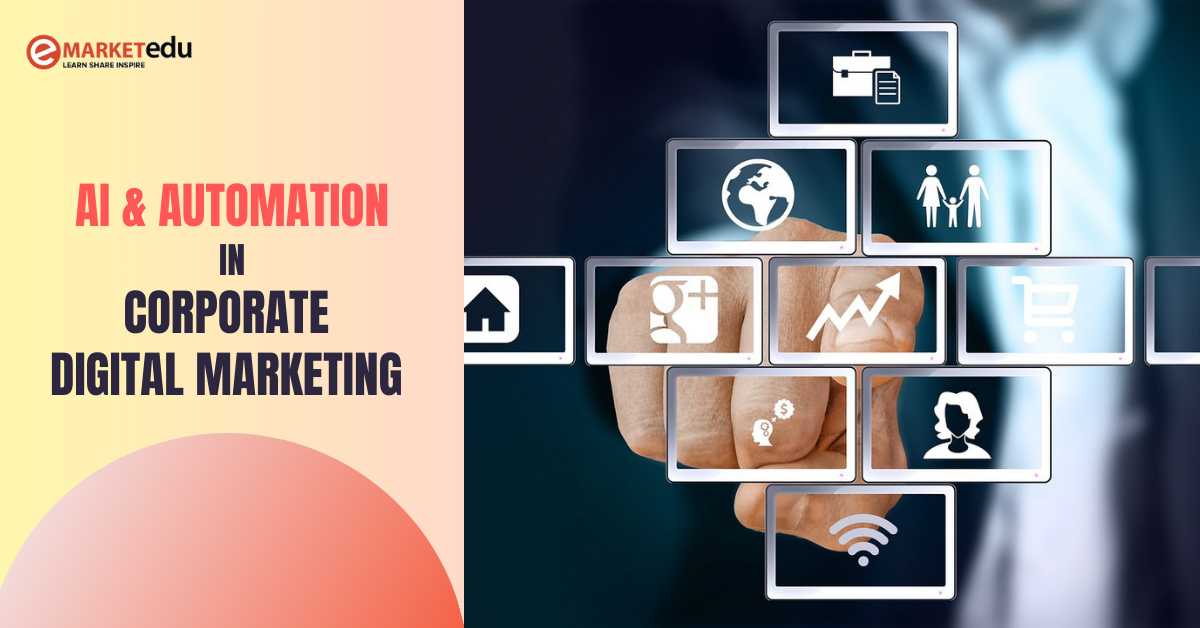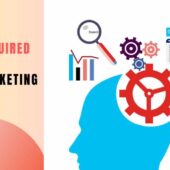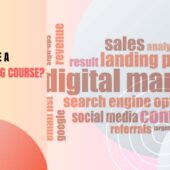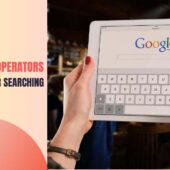Table of Contents
ToggleAutomation in Digital Marketing: Enhancing Efficiency with AI
“Some people call this artificial intelligence, but the reality is this technology will enhance us. So instead of artificial intelligence, I think we’ll augment our intelligence.” — Ginni Rometty
What is Automation and AI (Artificial Intelligence) ?
Automation includes any system, tool, or action where technology performs tasks with the least human effort or input. The advantage of automation is that it relieves teams from time-consuming, repetitive tasks and allows improved efficiency, streamlined processes, and fewer errors. From a household thermostat to a large industrial control system, self-driven vehicles, and warehousing robots, automation is used everywhere.
Artificial intelligence (AI) is the replication of human intelligence processes by machines, particularly computer systems. Some AI applications include expert systems, natural language processing (NLP), speech recognition, and machine vision.
Need of Corporate Training Digital Marketing
Automation in digital marketing is rapidly transforming the field. AI in digital marketing has impacted this revolution in many ways. AI and automation have enhanced efficiency, personalized customer interactions, and actionable insights in digital marketing.
How AI & Automation in Digital Marketing are Transforming e-learning Corporate Training?
1. Easy Round-the-Clock Chatbots and Customer Service:
- AI in digital marketing has transformed chatbot technology. AI-powered chatbots provide instant responses to customer inquiries, improving satisfaction and reducing the need for human intervention.
- Now chatbots can handle various tasks, from answering FAQs to guiding customers through buying.
2. Enhanced Data Analysis Scenario:
- AI can quickly process vast amounts of data, identifying patterns and insights that humans might miss.
- Automation in digital marketing has opened new doors in audience segmentation. Automation tools can segment audiences based on behavior, preferences, and demographics, allowing for more effective targeting and optimization.
3. Content Creation and Curation Aspects:
- Through creation of articles, social media posts, and product descriptions, etc, AI provides scope to marketers to focus more time on marketing strategy.
- AI tools can analyze what type of content performs best and suggest improvements.
4. Personalization and Customer Experience Aspects:
- Through analysis of customer data to delivery of personalized content, AI improves customer engagement and conversion rates.
- Marketers can tailor their digital marketing strategies through inputs from AI-powered analytics’ predations on consumer behavior.
5. Precise and more Effective Search Engine Optimization (SEO) and Pay Per Click (PPC) Activities:
- AI can identify the most effective keywords and predict search trends, enhancing search engine optimization strategies.
- Automation improves Pay-per-click (PPC) Promotions by targeting ads to the right audiences.
6. Smooth Advertising and Campaign Management:
- AI automates the buying of ads, more effectively targeting specific audiences and optimizing ad spending, thus boosting programmatic advertising significantly.
- AI tools monitor and analyze campaign performance in real-time, making performance tracking seamless. All these provide scope for quick adjustments and help increase ROI.
How Corporations Can Adapt the Impact of AI and Automation in Digital Marketing?
1. Invest in AI and Automation Technology:
- Companies should invest in AI and automation tools that enhance their marketing capabilities, such as analytics platforms, chatbots, and content creation software.
- Ensure seamless integration of new technologies with existing systems to maximize their potential.
2. Upskill Employees and Upgrade Competency:
- Provide training (hyperlink: https://www.emarketeducation.in/blog/corporate-digital-marketing-training-program-best-practices/) for marketing teams to understand and leverage AI tools effectively.
- Recruit talent with expertise in AI and data analytics to drive innovation.
3. Heightened Focus on Data Privacy:
- Stay updated with regulations like GDPR to ensure data privacy and maintain customer trust.
- Permission is must for collection of data from customers, and always maintenance of transparency about data usage is of paramount importance.
4. Enhance Customer Engagement:
- Use AI to deliver personalized customer experiences across all touchpoints.
- Implement systems to gather and act on customer feedback, continuously improving interactions by creating feedback loops.
5. Adapt Strategies Continuously:
- Be agile and ready to adapt marketing strategies based on AI-driven insights and changing market trends.
- Encourage a culture of experimentation to discover innovative approaches to digital marketing.
6. Measurement and Optimization:
- Use AI insights to make informed marketing decisions and optimize strategies for better results.
- Regularly evaluate the effectiveness of AI tools and strategies, making necessary adjustments.
Automation in digital marketing is here to stay, and AI in digital marketing is the current buzzword. By embracing AI and automation, corporations can enhance their digital marketing efforts, improve customer satisfaction, generate more conversions and sales, and drive business growth. The key is strategically integrating these technologies and continuously adapting to the evolving digital marketing landscape.
Also read our most loved posts related to – Corporate Digital Marketing:






